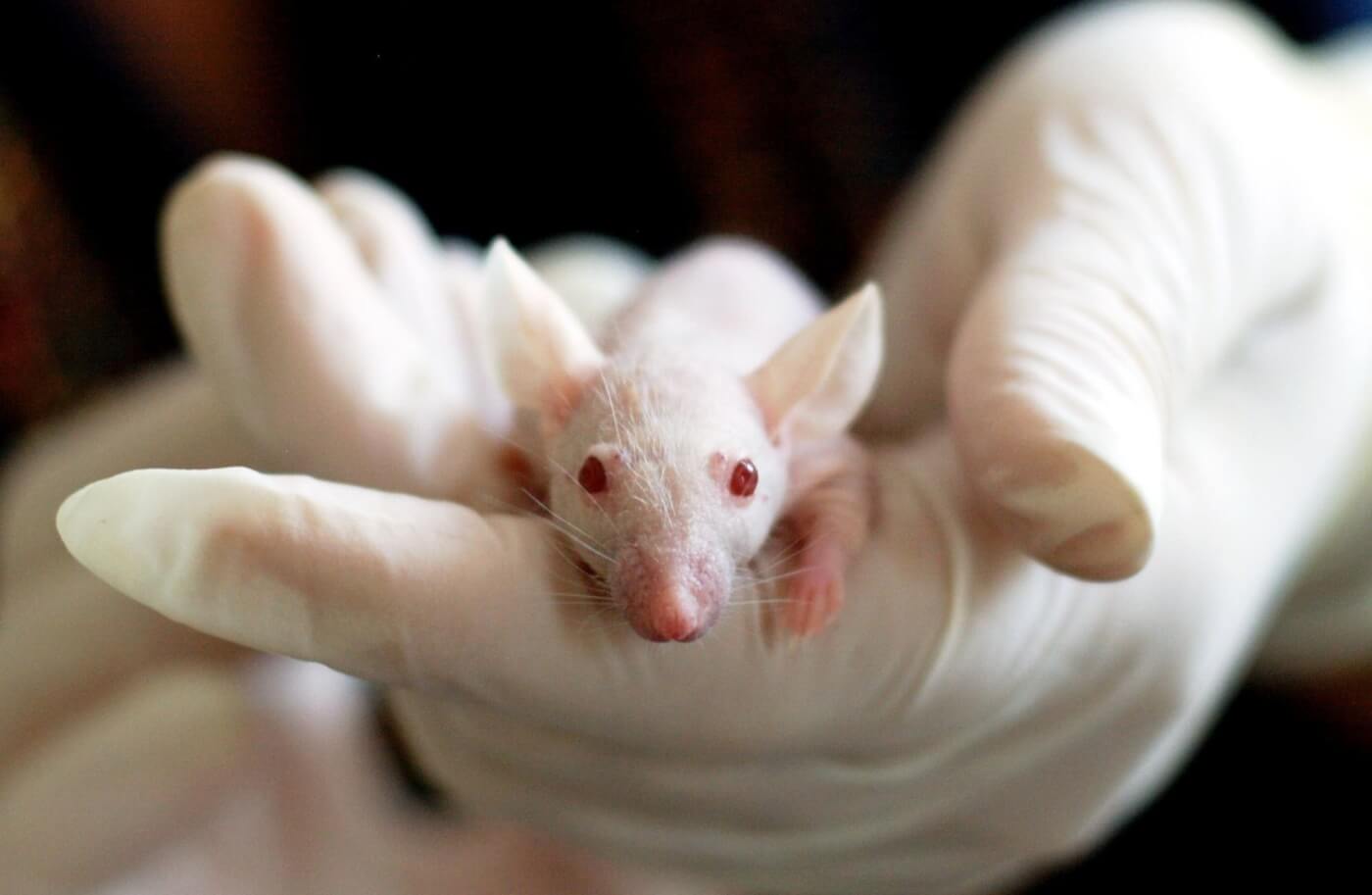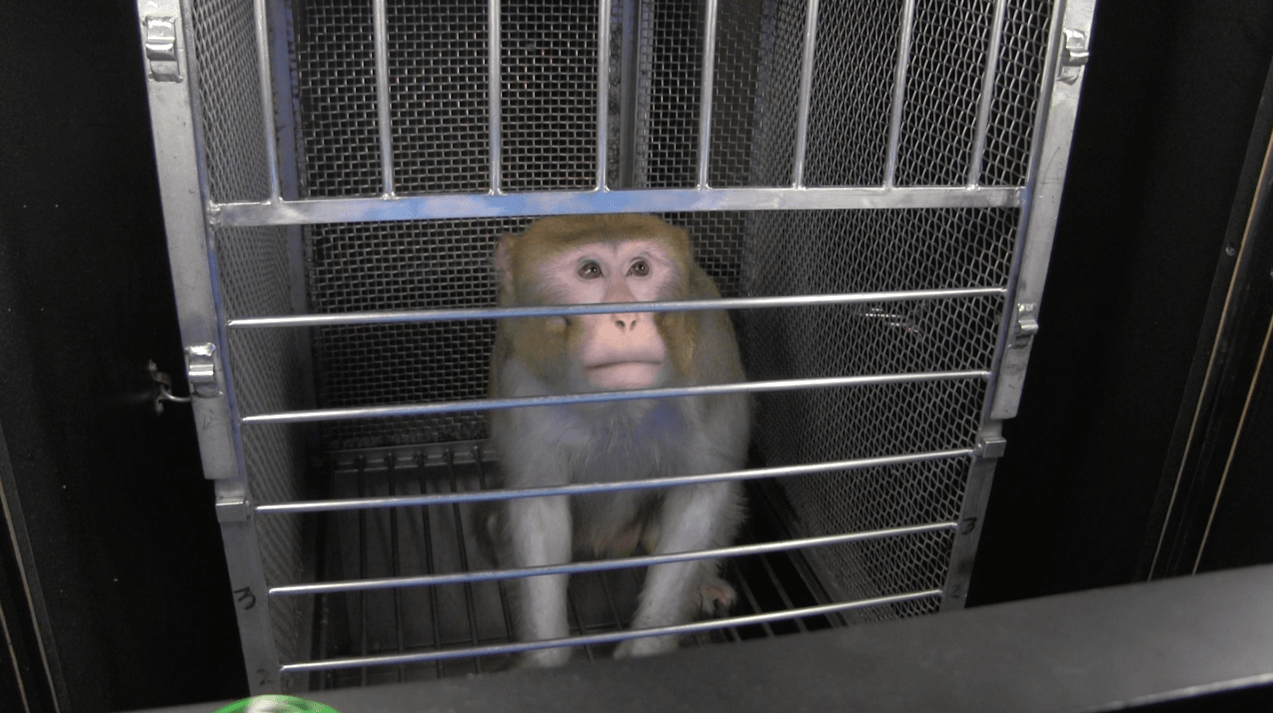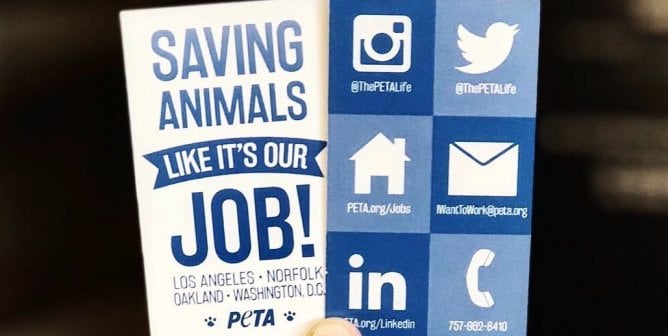Having a career crisis? PETA can help you narrow down your options. Skip the aptitude tests and take this quiz to find out whether you should become an animal experimenter.

1. Do You Like Hindering Medical or Scientific Advancement?
If you still hold on to the belief that experimenting on other animals can produce treatments for diseases in humans—even though 95% of all new drugs that test safe and effective in animal tests go on to fail or even cause harm in human clinical trials—then becoming an animal experimenter might be for you.
The statistics for some specific disease areas are even worse. Out of the approximately 100 HIV vaccines tested successfully on animals, not one has been shown in clinical trials to give humans sufficient protection from the virus. Out of 1,000 stroke treatments tested on animals, none showed a clinical benefit to humans. The failure rate for new Alzheimer’s drugs developed using animals is a whopping 99.6%. Cancer? 96.6%.
By becoming an animal experimenter, you’ll have the chance to hinder all sorts of possibly lifesaving scientific breakthroughs. Instead of exploring human-relevant research—like brain organoids, organs-on-chips, and advanced computer-modeling techniques—you’ll pursue cruel, archaic methods that don’t work. Who needs progress, anyway?

2. Have You Skipped Your History Lessons?
Have you heard about the worst failures of testing on animals throughout history? Let us catch you up.
In the 1950s, a drug called thalidomide was put on the market after passing “safety tests” performed on animals. The drug caused tens of thousands of human deaths and severe birth defects—including facial disfigurement and flipper-like arms and legs—worldwide. It was withdrawn from the market, but subsequent tests on pregnant mice, rats, and guinea pigs found no such adverse effects. The drug Vioxx, which was used to treat pain, passed safety tests on animals but was pulled from the market in 2004 after it was shown to double the risk of heart attacks and strokes in humans. It’s estimated to have killed 60,000 people. We could list plenty of other drugs that have had to be pulled from the market after passing safety tests on animals, but we wouldn’t want to bore you.

3. Do You Roll Your Eyes at Real Science?
If your definition of “science” is wasting precious time, money, and other resources, then using living, feeling beings as laboratory equipment hits every mark. Pay no mind to what “experts” say, including a Yale School of Medicine professor who co-authored a paper in which he concluded that “if research conducted on animals continues to be unable to reasonably predict what can be expected in humans, the public’s continuing endorsement and funding of preclinical animal research seems misplaced.” What do they know, anyway?

4. Do You Favor Greed Over Compassion?
Proficiency in deception is required to be an animal experimenter, as you’ll be tasked with duping taxpayers and well-meaning donors into believing that their money is being used to improve human health.
Billions of tax dollars are poured into funding cruel procedures annually. Experimenters get more animals to torment—and more funding to do so—each year.

5. Are You Able to Hurt Someone Without Feeling Remorse?
Experimenters tear baby monkeys away from their mothers in order to make them severely anxious and depressed, drop mice into inescapable beakers full of water and force them to swim for their lives, drip corrosive chemicals into rabbits’ eyes, and much more.
At the National Institutes of Health, experimenters suck out or burn parts of monkeys’ brains, confine the animals to a metal box, and terrorize them with rubber snakes and spiders.
At Texas A&M University, experimenters have repeatedly stretched the muscles of golden retrievers who were bred to suffer from canine muscular dystrophy with a motorized lever in order to cause muscle tears. At Johns Hopkins University, experimenters cut into the skulls of barn owls, insert electrodes into their brains, force them to look at screens for hours at a time, and bombard them with noises and lights.
These are just a few examples. As an animal experimenter, you’ll be part of an industry that torments and kills more than 100 million animals each year.

So, Should You Experiment on Animals?
If you answered “yes” to any of these questions, you would make a great animal experimenter. But if you want to push science and medicine forward and if you believe that animals aren’t ours to use as living test tubes, we hope you’ll join us in opposing useless experiments on them and pushing instead for humane, human-relevant research.





